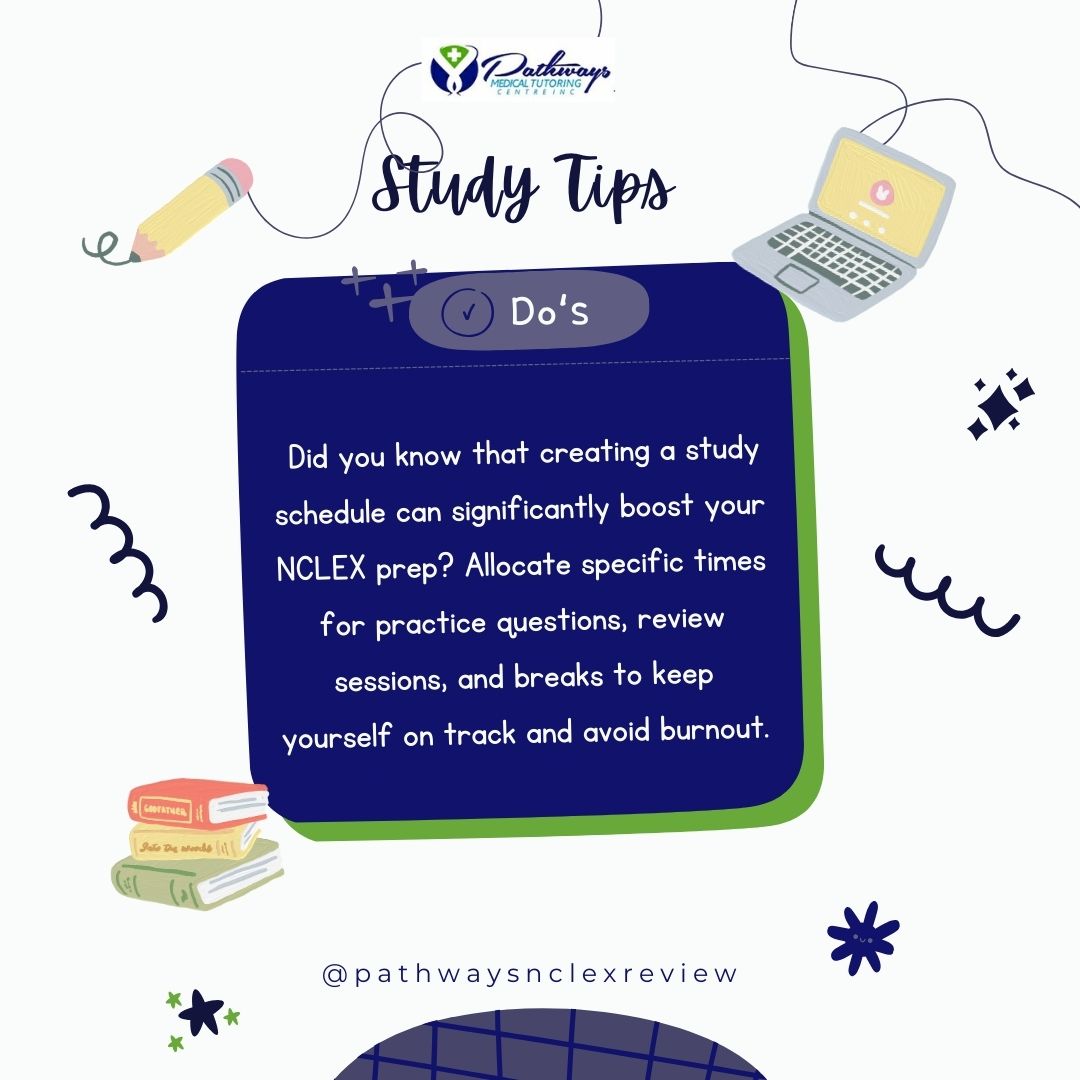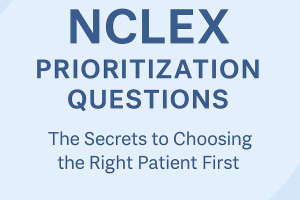How to Create an Effective Study Schedule for NCLEX Success

Preparing for the NCLEX exam can be overwhelming, but having a structured study schedule can help you stay on track and maximize your chances of success. Here’s how to create a personalized study plan that works for you:
Step 1: Assess Your Time and Goals
- Determine Your Timeline: Identify how many weeks or months you have before the exam. Ideally, allocate at least 8-12 weeks for focused preparation.
- Set Clear Goals: Break your study goals into manageable chunks. For example:
- Week 1: Master pharmacology basics
- Week 2: Focus on cardiovascular disorders
- Week 3: Practice delegation and prioritization questions
Step 2: Prioritize Key Content Areas
The NCLEX tests a broad range of nursing topics. Use the official NCLEX Test Plan to identify high-priority areas, including:
- Management of Care (20%): Delegation, prioritization, and ethical decision-making.
- Safety and Infection Control (12%): Proper use of PPE, medication safety.
- Health Promotion and Maintenance (9%): Growth and development, preventative care.
- Basic Care and Comfort (6%): Pain management, mobility.
Step 3: Allocate Study Time
Create a weekly schedule that balances review and practice questions:
- Daily Schedule:
- Morning (2 hours): Review content (e.g., cardiac disorders).
- Afternoon (1 hour): Practice NCLEX-style questions.
- Evening (1 hour): Review rationales for questions.
- Weekly Distribution:
- Spend 60% of your time on content review.
- Dedicate 30% to practice questions.
- Use 10% for self-assessment and review of weak areas.
Step 4: Incorporate Practice Tests
- Take a full-length practice test every 1-2 weeks to simulate the exam environment.
- Analyze results to identify patterns in your strengths and weaknesses.
- Adjust your study schedule based on performance.
Step 5: Schedule Breaks and Self-Care
Studying effectively also means avoiding burnout.
- Plan for short breaks after every study session (e.g., 5-10 minutes for every hour).
- Include a day off each week to recharge.
- Stay hydrated, exercise, and get enough sleep to maintain focus and energy.
Step 6: Use NCLEX Prep Tools
Leverage study resources to enhance your learning:
- Review Books: Use comprehensive guides like “Saunders Comprehensive Review for the NCLEX-RN.”
- Online Question Banks: Platforms like UWorld or Kaplan offer excellent NCLEX-style questions.
- Mobile Apps: Use apps like NCLEX RN Mastery to study on the go.
Sample Study Schedule (Week 1)
- Monday:
- Morning: Basic Pharmacology (e.g., drug classifications, side effects).
- Afternoon: Practice 50 pharmacology questions.
- Evening: Review rationales for incorrect answers.
- Tuesday:
- Morning: Cardiovascular Disorders (e.g., hypertension, heart failure).
- Afternoon: Practice 30 cardio-related questions.
- Evening: Watch a video on EKG interpretation.
- Wednesday: Repeat for another system or topic, like Respiratory Disorders.
Final Tips
- Stay Consistent: Stick to your schedule as closely as possible.
- Be Flexible: Adjust your plan if you encounter unexpected challenges.
- Stay Positive: Remind yourself that consistent effort leads to success.
With a personalized study schedule, you can stay organized, reduce stress, and enter exam day with confidence. Take it one day at a time—success is within your reach!






